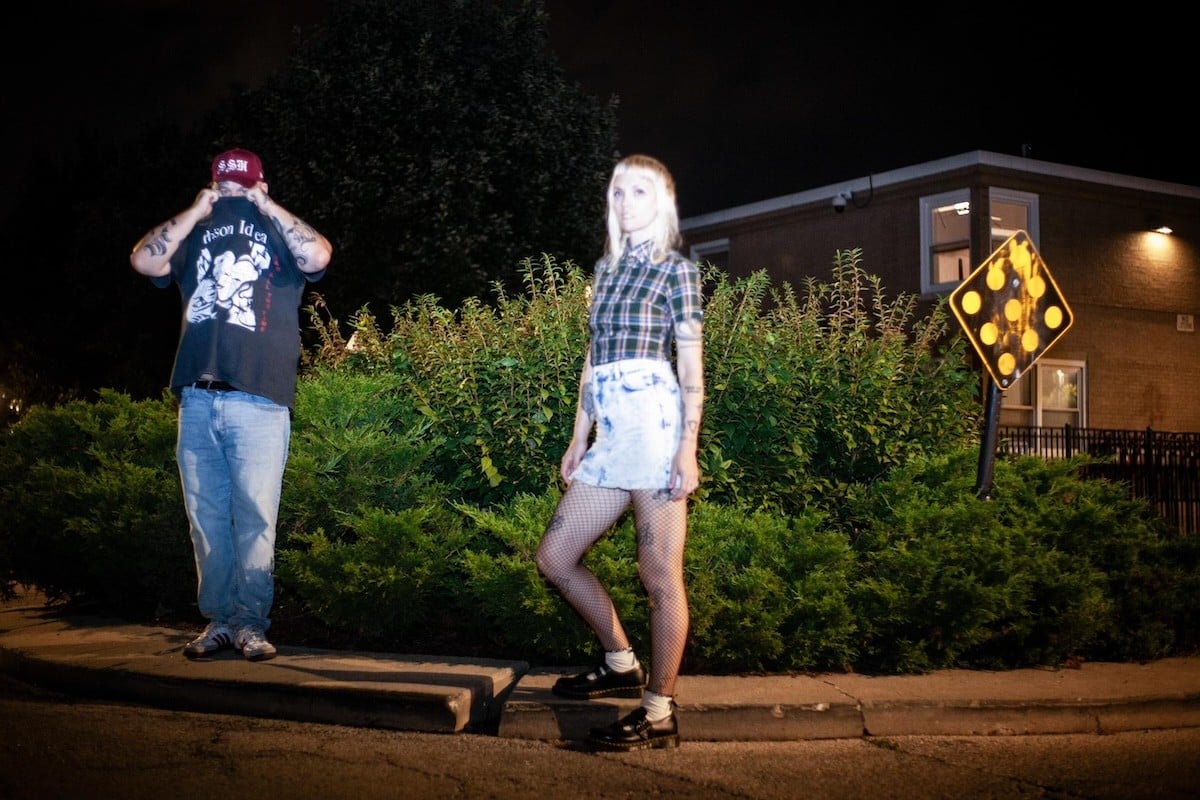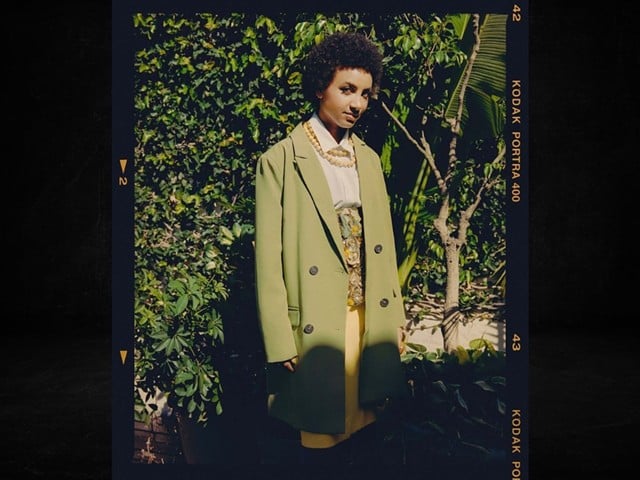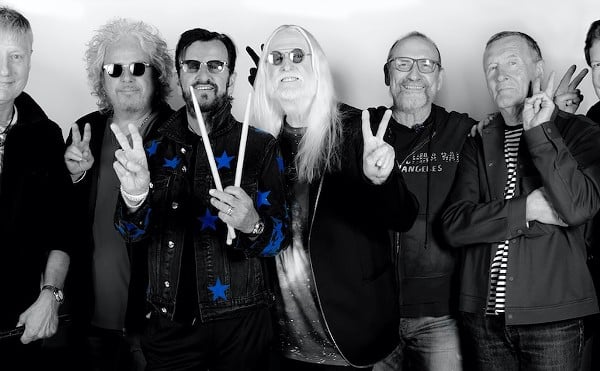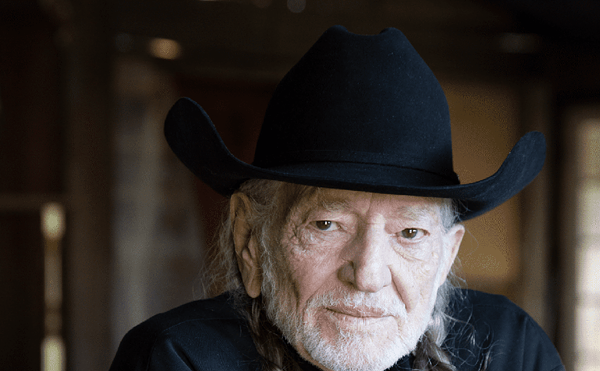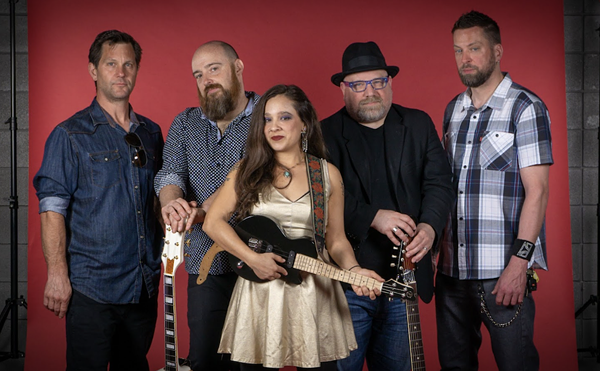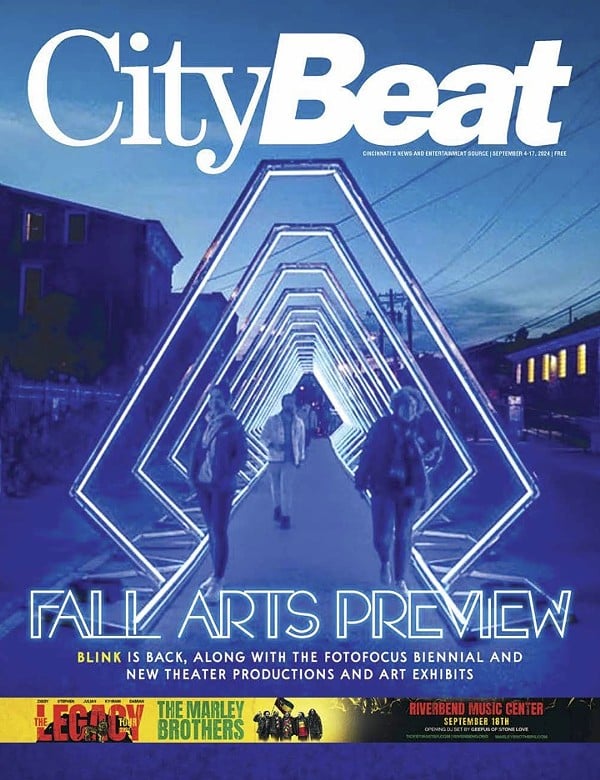Kentucky roots run deep for Tobias Grave, frontman of post-punk band Soft Kill. His father, Toby Francis, and uncle, Elwood Francis, were the first of the family to escape Hazard, Kentucky, and hit the road to work with some of the most iconic bands of the ‘80s. This would inevitably introduce Grave to the punk rock world.
Grave’s journey hasn’t been without adversity. He is very open about overcoming his own battles with abuse, addiction and the deaths of loved ones — which are all themes that can be heard in his lyrics throughout each Soft Kill record.
CityBeat recently connected with Tobias Grave over the phone while he was grocery shopping before getting a new tattoo — the definition of punk rock.
CityBeat: We're just really stoked about you guys coming to Covington/the Cincinnati area to play the show.
Tobias Grave: A big chunk of my family is from Kentucky, so I grew up spending summers and holidays mostly outside of the Lexington area. They're originally from Hazard, but they escaped the conditions of coal mining. I think my dad and his brother — my uncle — are one of the first generations to get out of Hazard. My dad has this really great story about it. If it's not true, I want it to be true. His grandfather took him all the way to the bottom of a coal mine, and turned the lights off, and said, “Do you feel that? That's all that's here for you if you stay.”
CB: That’s heavy. I love it when people have some Kentucky ties. Did you grow up in Kentucky?
TG: No, my dad and my mom split when I was 7, but my dad and my uncle are both roadies by trade. They essentially just followed the road, which was definitely not conducive to maintaining relationships with family and things of that nature, but it did well for them. My dad nowadays does sound for really big bands, and his brother plays bass in ZZ Top. My uncle — he's the one who set me on the course of making music to begin with — he got me into all of my baseline punk bands that I still love.
When I was a kid, when my dad was still with my mom, they both worked for Aerosmith, and we lived only 45 minutes north of Boston. My uncle got the ZZ gig in the mid ‘90s, and when Dusty (Hill) was sick, my uncle stepped up just to fill in for the shows. Unfortunately, Dusty passed away, and he's kept playing bass. So my dad and him both have, like, a storied list of people that they've worked for. While I didn't grow up with my dad, I definitely grew up with the influence of both of them.
CB: You’re in the Chicago area now, right? I’ve seen that Soft Kill is considered a Portland band.
TG: Yeah, I chose Chicago as my second home. The band has always associated as a Portland band. It's mainly that the initial record label that put out the first album was Portland-based. That was where the band got assembled for the first lineup of shows.
CB: Before the band was Soft Kill, was it a different band altogether or just went by a different name?
TG: The band prior to this was called, the technical pronunciation was (speaks with a French accent) Blessure Grave, but being like a trash American idiot, I read it on the inside of a car visor, and I was like, “oh, that's a great punk band name.” And that was a really raw, strictly home-recorded version of similar ideas that became Soft Kill. But Soft Kill initially was really rooted in guitar-driven ‘80s new wave, post-punk stuff like Magazine, and The Chameleons and Sad Lovers & Giants. It was really trying to be something in particular, matched with a fidelity from recording in a studio, that kind of just took it to another level. It definitely did feel enough of a progression to be something that was its own, but it is legitimately the same path, and band, in a lot of weird ways.
CB: I had read that you were influenced by the music of John Hughes films. Do you have a connection with those films?
TG: With John Hughes, those movies were, in a weird way, kind of subculture films. We didn’t have a lot of movies where people worked in record stores and listened to new wave and punk. I would say that my favorite — I personally adore and love all of them quite a bit — but Pretty In Pink is like my fantasy of life. As a child, at least. I mean, she is off-kilter in a way that is so realized and mature for the age. And I think that’s what being a young punk rocker was like in Seacoast, New Hampshire. I kind of just had to act like even though I had put a big old target on my head, that that was absolutely who the fuck I was, and you couldn’t tell me differently.
That’s what the world looked like when I was growing up. And it doesn’t really look like that anymore, and, again, it’s very nostalgically blissful and sad at the same time to visit those movies.
CB: Speaking of nostalgia, who are some of the influences that have inspired you to want to get into music? I’d imagine your father and uncle would have a lot to do with it.
TG: I saw …And Justice For All (album by Metallica) twice as a kid. I saw The Black Album (album by Metallica), and I was in the snake pit, and that was really pivotal for me. It was my gateway into punk rock, 100%. I visited my uncle who was in Lexington at the time, and I went to a record store, I was like 13 or 14, and I bought Garage Days, and they cover The Misfits. Hearing their cover of “Last Caress,” which those lyrics haven't aged well, I went to school in seventh grade and I had no friends, and I had green hair and I knew the words to that song and I didn't really know anything about The Misfits. But me singing that song to myself at the table is what got — what became my core friend circle, to walk up to me and say, “Who the fuck are you?” Misfits are another heavy standard, trope-ish answer, but they are absolutely the core of my understanding of music. And it’s really bleeding through in the more recent shit too, just vocally.
Blitz, they were combining punk with more melodic, new wave, post-punk influences, which really became a blueprint for me, and how I heard even softer stuff being kind of presented aggressively. That shined through more and more as the years have gone on.
I could go on about a billion bands that don't matter that were really influential to me, but the bands that really shaped me for Soft Kill — the main one is always going to be Mark Burgess of The Chameleons. The two-guitar interplay, the way that one person is playing really lush, pretty, atmospheric, and the other has a more aggressive approach. Those two layered together — there's something about layering stuff like that and then putting simple bass right down the middle. It's still doing it for me fucking 14 years later.
Definitely Magazine and Siouxsie and the Banshees. John McGeoch — he’s a guitar player — had this approach that was really game-changing for me. I finally sat down and spent time with it, and when I picked the guitar up, I just played it differently. So that was kind of the main reason that the first Soft Kill record sounds the way that it does, is his approach.
CB: I think you can definitely hear a lot of those influences within the different albums. Tell me a little bit more about the newest album, Escape Forever.
TG: Escape Forever was the most honest and enjoyable time. It was what I wanted my band at 15 to sound like. I was at home and finally had the skillset to make that come to life in whatever crude way possible. It’s a really big departure in terms of the comfort zone of most Soft Kill listeners. It didn't come out as polarizing as I expected it to. There’s a lot of lows on the album, and there's a lot of distorted guitar. Younger kids are coming to shows and connecting to it in a different way, which is pretty exciting. The second you start blasting bigger songs a little faster, a younger audience is going to walk into it, and the energy that they bring is just priceless. It makes it so fun to play shows.
CB: I know that you're very open and transparent about overcoming addiction. For those who might not know, are you willing to share your story?
TG: So, I come from a family of addicts, and they didn't talk a lot about that stuff, and I had traumas and abuse and things like that growing up, which created a drive to be accepted into circles and groups that I never personally utilized alcohol or drugs to interact with. At 20 years old, I tried cocaine and then tried heroin within the same couple months, and heroin connected with me in a way that took over a decade and a half from my life.
I lost my cousin to an overdose. His death was the big catalyst for my dad and I to ever have our first honest conversations about my disease of addiction. Prior to that, I think a lot of my actions were definitely directly aimed at victimizing him for my own ability to stay using. We were able to talk and be like, “Hey, there's something deeper going on here; maybe it's relatable to you, maybe it's not.”
I've got family members that are doing life in prison for sales of fentanyl in Kentucky, and I have family members who are dead and their kids are essentially orphaned by this stuff. It is a huge underlining part of the Soft Kill story, in that most of what inspires me to write music, in terms of the lyric half of things, is loss, and most of the loss that I have experienced has been at the hands of two very American things, which are drug addiction and gun violence.
We carry a bunch of Narcan and have it on the table. I talk on stage, especially before this one song, “Pretty Face,” about my story, and try to make it relatable. I’m six years clean. There needs to be people saying the dreaded disease word out loud. A lot of people think that the human choice of picking up is the end-all, be-all culprit, and there's just so much more to it than that. I would love to have more resources related to treatment and recovery for the disease, and until we have that, I'm going to have to get on stage and whine about it.
CB: Incredible. Have you guys played in the Cincinnati area before?
TG: I played in Cincinnati a long time ago. I love Cincinnati. For me, it's where my uncle grew up going to shows. The coolest part about making music and touring is going to new environments and towns and cities. I'm really excited to play Kentucky again. Kentucky and Cincinnati are special places in my heart. So I'm really honored and stoked that we're going to get to go play songs there.
Soft Kill plays Madison Theater on Sept. 19 at 8 p.m. More info: madisontheater.com.
This story is featured in CityBeat's Sept. 4 print edition.

